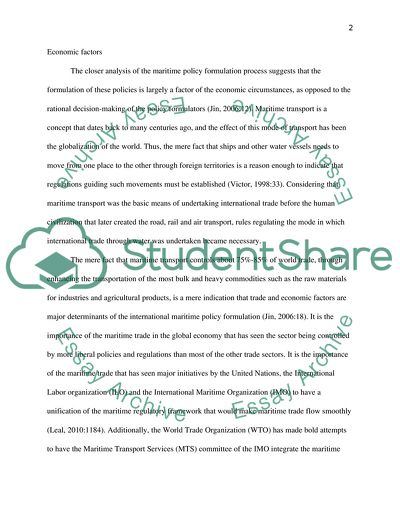Cite this document
(Factors Influencing the Formulation of Maritime Policy at Coursework, n.d.)
Factors Influencing the Formulation of Maritime Policy at Coursework. Retrieved from https://studentshare.org/law/1841698-what-factors-influence-the-formulation-of-maritime-policy-at-international-level-use-the-imointernational-maritime-organisation-and-ilo-international-labour-organisation-as-examples-to-illustrate-the-point-in-your-discussion
Factors Influencing the Formulation of Maritime Policy at Coursework. Retrieved from https://studentshare.org/law/1841698-what-factors-influence-the-formulation-of-maritime-policy-at-international-level-use-the-imointernational-maritime-organisation-and-ilo-international-labour-organisation-as-examples-to-illustrate-the-point-in-your-discussion
(Factors Influencing the Formulation of Maritime Policy at Coursework)
Factors Influencing the Formulation of Maritime Policy at Coursework. https://studentshare.org/law/1841698-what-factors-influence-the-formulation-of-maritime-policy-at-international-level-use-the-imointernational-maritime-organisation-and-ilo-international-labour-organisation-as-examples-to-illustrate-the-point-in-your-discussion.
Factors Influencing the Formulation of Maritime Policy at Coursework. https://studentshare.org/law/1841698-what-factors-influence-the-formulation-of-maritime-policy-at-international-level-use-the-imointernational-maritime-organisation-and-ilo-international-labour-organisation-as-examples-to-illustrate-the-point-in-your-discussion.
“Factors Influencing the Formulation of Maritime Policy at Coursework”. https://studentshare.org/law/1841698-what-factors-influence-the-formulation-of-maritime-policy-at-international-level-use-the-imointernational-maritime-organisation-and-ilo-international-labour-organisation-as-examples-to-illustrate-the-point-in-your-discussion.


